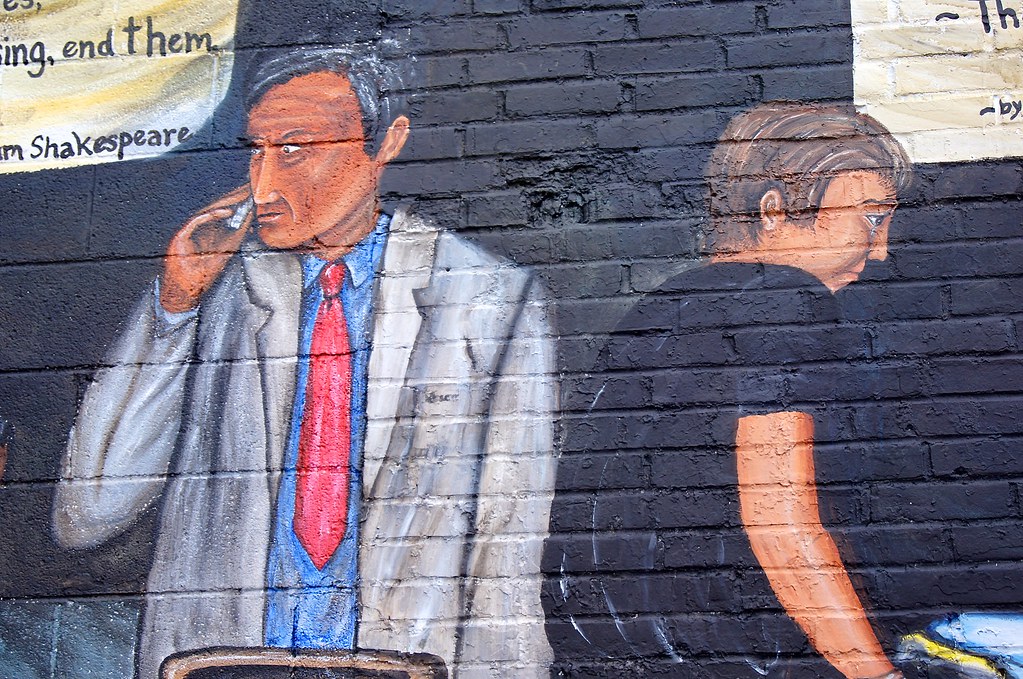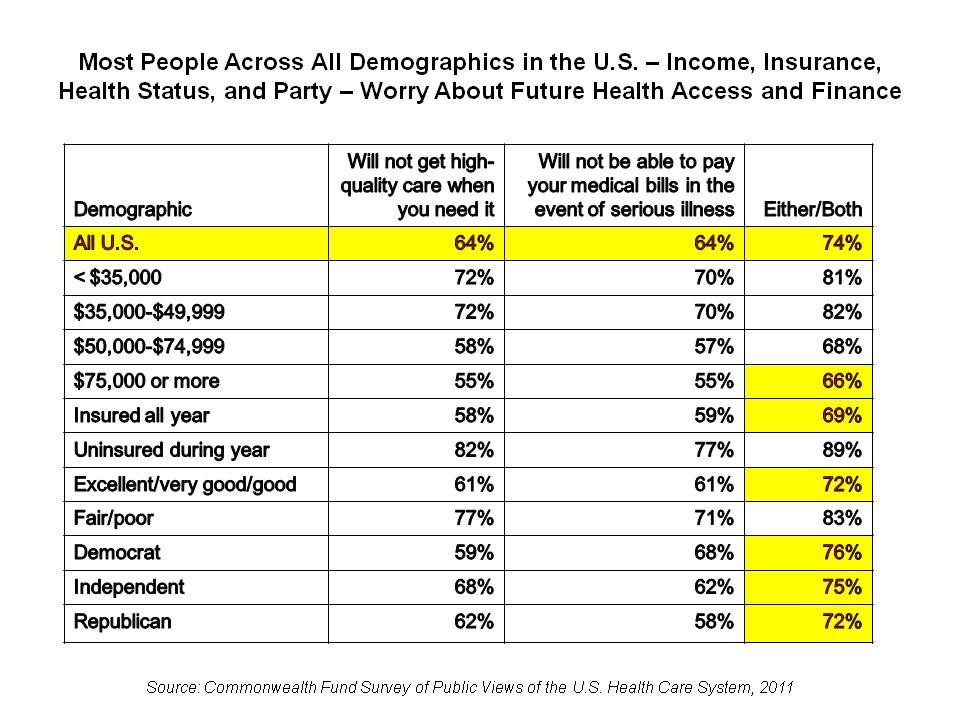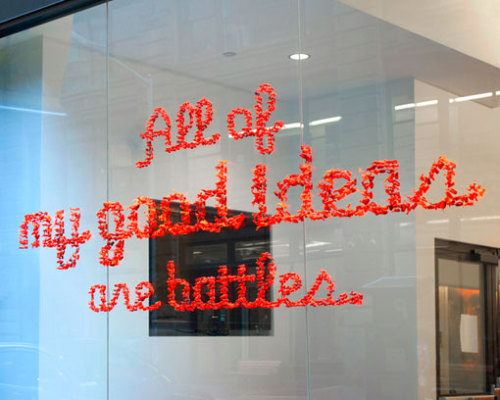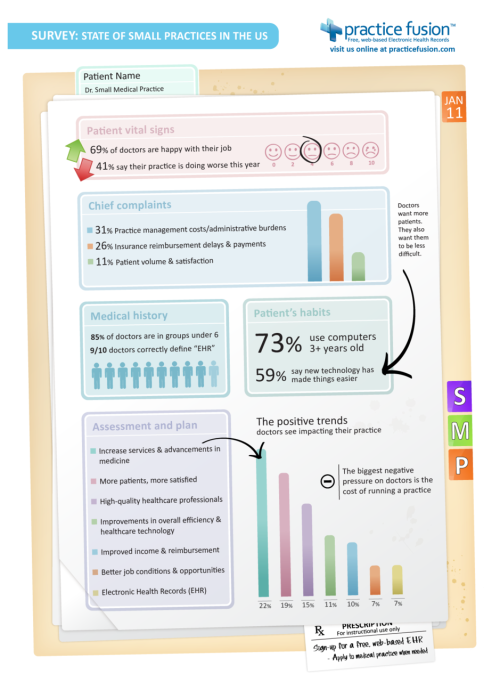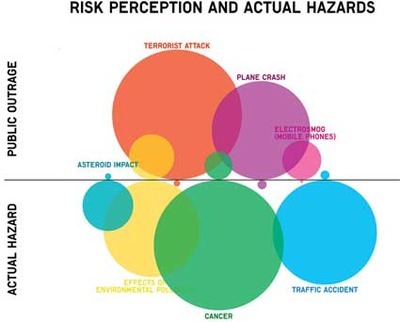June 25, 2011
June 23, 2011
I love reading Joan Didion.
June 22, 2011
Checking Email
June 21, 2011
Patti Smith - Just Kids
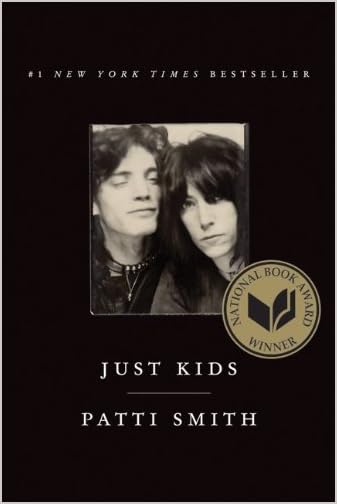 Patti Smith writes innocently. She reads in a fluid way, the way a skateboarder must feel when the ricocheting of the wheels against the ground is lost to the smooth ride. It feels like Patti escaped the noisiness of the world, but not without difficulty. She knows of it, but lives beyond it.
Patti Smith writes innocently. She reads in a fluid way, the way a skateboarder must feel when the ricocheting of the wheels against the ground is lost to the smooth ride. It feels like Patti escaped the noisiness of the world, but not without difficulty. She knows of it, but lives beyond it.I can't echo her writing through metaphor as well as a reader can decipher it through "Just Kids". Overall an ode to Robert Mapplethorpe, the book speeds through adolescence into young adulthood in mid-60's New York. Andy Warhol fanaticism, Martin Luther King's death, Jimi Hendrix being cool, Janis Joplin's insecurities, and other folklore play out in first hand.
Life just happened to Patti Smith, and she didn't struggle against it. She was lost and hungry and destitute, but kept going for the sake of art. I was sucked in by this struggle and couldn't stop reading, trying to figure out what this esoteric term that couldn't be seen or defined meant to her. Art in some sense was god, though the religious relation was never mentioned.
I couldn't relate to her hardship because I always found a practical solution for it. When Robert went through withdrawal, why did she take him to the Chelsea Hotel and not to Saint Vincent's? Why didn't she ask Janis Joplin or Jimi Hendrix to see her work and sponsor her? I was continuously drawn to her lack of finding a solution and letting circumstance suit her pace of life. Maybe she happened to life, because she would reject offers to sing or read her poems when they didn't feel right. She would pursue acting, though she didn't have any experience in it.
Patti and Robert had an approach to life that didn't at all make sense to me. I think that's the point. Patti wrote "Just Kids" to show the simple sinusoidal flow of life. Not just the content, but also the writing echoed that sentiment. There was no meaningful conveyance of "follow my route". There was no way you could anyway. No ego, no audience to write to, no publisher to impress. I'm reminded of Anna Nalick's "2 am" when she says she had to get a song down on paper before it threatened the life it belonged to. That's probably what Patti felt.
She was asked to write about her time with Robert by Robert and though you knew it the whole time, she only shared that at the end. This didn't have to be published for her to feel the work was complete.
May 24, 2011
The Art of Non-Conformity » Hello, My Name Is…
"I don’t think that any of these ideological constructs are bad—in fact, they’ve clearly done good things for the world and helped a lot of people live more intentionally. But I do think it’s a mistake to group yourself into someone else’s idea of identity."
From Hello, My Name Is… by Chris Guillebeau
This post is one of the most clearly laid-out arguments against labels. The most difficult part about fighting labels is becoming another label during the process. You become anti-label and the cycle is never-endless from there.
I like the way Chris links labels back to defining your personal identity. So many of us gain from dressing up, looking a certain way, having a higher-sounding title, living in a swanky neighborhood, working at that awesome company because of the way people look of us. Their perception of us makes us feel better. We become what others admire in that era - that specific moment in time when dark jeans or ties or hats or geekiness or tech work or working at Apple or McMansions or Beverly Hills or whatever are the in thing. We're social animals and we climb that hierarchy set for us by our social structures. Memes.
If we step out of that moment - or rather mement - and dig down deep for what we care about, we might find something different. Something dissimilar to the current social norm. We can never avoid labels, but going through the "know thyself" exercises lets us create our own or more solidly become part of a mission that we consciously agree with.
What mement are you a part of or do you want to create?
May 23, 2011
Money, Happiness and Personality
"Life, except for the obvious physical needs, is not so much defined by the external situation as by the inner one. Having money won’t change your internal makeup. If you’re an anxious sonofabitch without money, you’re going to be an anxious sonofabitch with a lot of money."
Money, or the lack thereof, brings out the real you. Stickler, freewheeler, bragger, hoarder, hider, straggler, whatever your personality might be is what personality you have with money. The link between money and happiness is much more uncertain than with money and personality. It's the not the personal earning, but the personal growing, changing and evolving that will change someone's relationship with money.
I've been learning a lot about my personal relationship with money and how closely it's associated with my philosophy of life. I don't much like what I'm discovering. The strong correlation just means I guide my life around its accumulation. It's not just currency, it's my value system. And I'm working on changing that.
The strongest influences are people who's value systems define their currency. For example, some people believe strongly in the value of relationships. We all might think we do, but we mostly hang out with similar socio-economic groups, lots of us make friends up the ladder, and marriage-wise, misunderstanding about financial issues is always among the top 3 reasons for divorce. People who truly value relationships deal in a different currency. For them, social capital may be important; how many friends you know that you can rely on, the level of trust you've garnered with your partner, etc. They're trading and bartering on a social exchange rate.
Other people have value systems surrounding creativity. They deal in the currency of art, originality and aesthetic. Regardless of money or power or social capital, they're motivated and drawn to what moves them visually or musically. It's something unseen, but felt at their core.
I'm learning these different currencies, which seem so new to me, but have been around forever. Everything is intrinsically linked to money, but it doesn't have to be the guiding force or value system that drives us. It's the byproduct that lets us be more ourselves, whatever that personality might be. In a capitalist system, all of us are susceptible to being caught in an accumulation cycle and it's when we stop and assess our personality, values and motivations that we can truly begin to grow and change our relationship with money, and happiness.
May 9, 2011
May 6, 2011
How to Be Unremarkably Average
"Use your credit card as your primary means of spending. Get the largest mortgage you can qualify for. Fill it with plasma TVs and expensive furniture. Buy a big, new car and complain about the cost of gas. Spend all you earn, or maybe even more than you earn. The government will help you if there’s a recession. Spend money on things you don’t want but will help you impress others."
The recurring theme is personal security; doing what's safe, sticking to what you know and understand. There's nothing bad in that. We are all trying to achieve some form of security, but when we reach it we slow down. And we certainly reach it when we hit the average mark.
The key word is "trying". We should never stop. There is no achieving "security", only the sense that we have. The revolutions going on around us wake us up to that fact. Security is an aim, not a reality. There's nothing disconcerting in that. Rather, it keeps us alive!
May 2, 2011
The Upside of Irritation
"No matter how good we are at controlling our circumstances, there will always be factors and people that we cannot control. How we respond to these experiences to a great degree determines the quality of our lives. The goal of spiritual development is not to learn to control our environment—which is more of an ego-driven desire. And while having some measure of control over our external reality is important, it is when we are confronted with a person or situation that irritates us and we can choose not to react that we know have made progress spiritually. It is when we have mastered our internal reality that we will have become the masters of our lives."
April 21, 2011
Group Think
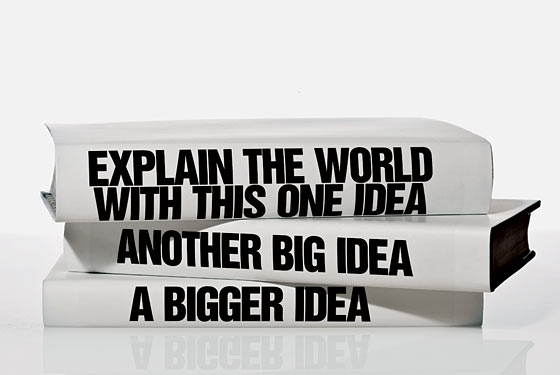
"To which I say: key-shmey. There is no rule, process, peer group, leader, or best seller that can absolve us of the responsibility of thinking our way through life on our own two feet. What irks me most about this infinite parade of gigundo solutions isn’t their glibness or even the borderline theology (of some) and borderline Babbitry (of others) involved in promising audiences easy, happy, profitable ideas. Nope. What irks me is that when you rigidly apply grand theories to everybody, sooner or later everybody feels like nobody, whether you’re in Communist Belgrade or the local DMV. There is a reason we call such systems soul-crushing: They ignore or annihilate individual difference and inner life."
April 20, 2011
Seeking Advice from Yourself
"Think back to how you viewed the world when you were younger. What were your thoughts on happiness, love, and injustice? Think about how you would have reacted to a dilemma you are currently facing. The perspective may shed a different light on relationships, money matters, or life decisions. Likewise, think about the person you will become. A more mature version of you might mull a problem or conflict over carefully before taking action right away… or perhaps not. Maybe your older self would be more willing to take risks, care less about what other people think, and want to enjoy life more."
April 19, 2011
The Internet hasn't invented the skeleton in the closet...
"The Internet hasn't invented the skeleton in the closet, it's only made it easier to take the skeleton out. That doesn't mean that humans can't be mature."
April 18, 2011
We love our reflections

"When researchers partially morph a person’s face with a politician’s, that person becomes more likely to approve of the politician — and has no clue why. As long as the ratio of the politician’s features remains below 40 percent, the person doesn’t even realize the photograph was doctored."
April 15, 2011
David Christian: Big History
This is wonderfully put together and the way it ends is just remarkable.
April 13, 2011
Gentle Nudges
Jane Sarasohn-Kahn says it best:
Health is mobile, and health care is local. The So-Lo-Mo phenomenon plays beautifully into the world of moms, who are their families’ Chief Household Officers. Mothers have been the key determinants of health and health care consumption in their households, and mobile gives them the platform that makes their health decisions more efficient and even engaging.
April 12, 2011
Newsletter: Spring 2011
The interplay between the two sides in daily life was remarkable to
I'd love to hear about what's going in your life, so drop me an
All the best,
April 11, 2011
Knowing when to change
"When I was 17 I read a quote that went something like “If you live each day as if it was your last, someday you’ll most certainly be right.” It made an impression on me, and since then, for the past 33 years, I have looked in the mirror every morning and asked myself, “If today were the last day of my life, would I want to do what I am about to do today?” And whenever the answer has been “no” for too many days in a row, I know I need to change something.
Remembering that I’ll be dead soon is the most important thing I’ve ever encountered to help me make the big choices in life, because almost everything—all external expectations, all pride, all fear of embarrassment or failure—these things just fall away in the face of death, leaving only what is truly important. Remembering that you are going to die is the best way I know to avoid the trap of thinking you have something to lose. You are already naked. There is no reason not to follow your heart."
April 9, 2011
Be a pupil of myself
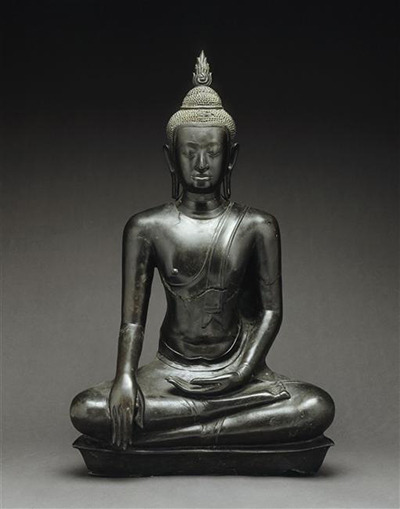
siddhartha
I shall no longer be instructed by the Yoga Veda or the Aharva Veda, or the ascetics, or any other doctrine whatsoever. I shall learn from myself, be a pupil of myself; I shall get to know myself, the mystery of Siddhartha.” He looked around as if he were seeing the world for the first time. - Hermann Hesse in Siddartha

March 25, 2011
Make It Mean Something
They might tell the House [of Representatives] that there's a 1.5 percent failure rate, but most Americans don't understand what that means. I mean, 1.5, what is that? Is that a lot? You have to relate it to something that means something to somebody. Otherwise, people have the perception that space flight is safe, and when there's an accident, they're shocked. It's like, "We gotta stop flying." If we want to add additional safeguards because now we're feeling emotional about it, okay, we can do that. But if we're still meeting our design specs for loss, why would we stop flying?
March 12, 2011
Google: Creepy & Fantastic

I typed in "japan earthquake" in Google to find out more details about the location and the magnitudes of the recent earthquakes. Google had organized US Geological Survey data in way that told me exactly what I was looking for. As if the search engine were reading my mind.
It's what makes Google so creepy and fantastic.
January 28, 2011
Who profits off you being unhealthy v. healthy?
- Coca-Cola makes a direct profit off you behaving unhealthily. What are the companies that make a direct profit off your everyday behaviors that optimize health?Like Reply
- This is a good question - much of the US economy clearly benefits from promoting unhealthy behavior (e.g, mainstream food industry, energy, health care, retail, etc.).
I suspect most facets of tourism make a direct profit off of behaviors that optimize health.
January 20, 2011
Third Space
I've loved the idea of a "third space" since I learned of it only a year ago. I can't wait to go here.
January 14, 2011
There's no space for the extra space
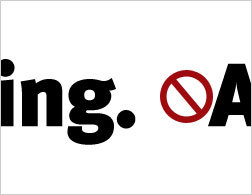
There’s no space for the extra space. By Farhad Manjoo on Slate.
I saw this piece earlier in the day and loved it. We don't need two spaces after the period. It's just a convention that can be changed. Although, as I typed this I found myself double-tapping the space bar after periods and corrected it after the fact. Ugh.
Also, why do people put their hats on AFTER they get outside? You lose all that heat off the top of your head and then trap cold air inside. Put it on before you get out the door and you won't even feel the transition into cold weather.
January 12, 2011
The joy of not being sold anything
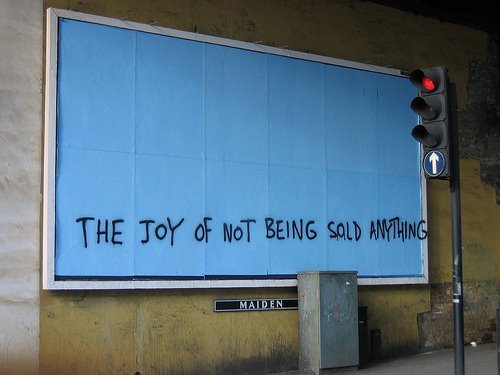
I've been thinking a lot lately about useful ads, good ads, value-filled ads that inform us and motivate us. Ads about community events, blood donation, clean sidewalks, and healthy living. Ads that communicate the variety in our culture, the foods, the music, the arts, the people and their ways of thinking.
Ads that don't have to sell.
Why are we willing to believe things that are false?
Newsletter: Winter 2011
January 10, 2011
Working Hurts Less
On procrastination and how to think about the substitute activities that we do instead of dong work:
When you procrastinate, you’re probably not procrastinating because of the pain of working, because on a moment-to-moment basis, being in the middle of doing the work is usually less painful than being in the middle of procrastinating.
That is pretty useful to remember. And another tidbit:
I’m starting to think that […] you do not regain mental energy from [procrastination. Success and happinesscause you to regain willpower; what you need to heal your mind from any damage sustained by working is not inactivity, but reliably solvable problems which reliably deliver experienced jolts of positive reinforcement.
I think this is a pretty useful insight - when compelled to procrastinate, what you choose to do can greatly affect whether you manage to get actual work done later.
In October of last year, there was a great piece in the New Yorker about procrastination that convinced me to change my working habits immediately.
I took on exactly this philosophy that procrastination is a personal signal of unhappiness. Neal Stephenson once wrote, "Boredom is a mask that frustration wears". The usual precursor to procrastination was boredom, which told me two things; I was frustrated about something that was making me unhappy, which in turn was making me avoid what I was frustrated about.
I began looking for segues that would lead me back to productivity. If I had to read a long policy paper and I was procrastinating, I would read a novel instead, which would gear the reading side of my brain and get the right word-scanning juices flowing to ease into governmental policy.
If I had to analyze a report on work RVU productivity variations for five specialty practices, I would take a break from the computer, walk, and observe in detail my surroundings, exercising my analytical brain to see things I normally wouldn't see. When I got back to the task at hand, it'd be a natural transition to sit in front of the computer for a few hours comparing numbers.
As noted above, having self-awareness about how you feel when you're in the middle of something produces direct results in your behavior. I'd rather be in the middle of a good book or walk than surfing the web. Scheduled surf time is far more rewarding.
January 9, 2011
Bill Maher - Anti-Pharma Rant
January 8, 2011
The Great College-Degree Scam
Here it is: approximately 60 percent of the increase in the number of college graduates from 1992 to 2008 worked in jobs that the BLS considers relatively low skilled—occupations where many participants have only high school diplomas and often even less.
How to land a job
"Here's how career changers are most likely to land a job: Make a list of 100 people who know you. They don't even have to love you. Let's take the worst case: a boss who fired you. He might be willing to give you a lead on a better-suited job. And that's the worst case. Chances are that if your list includes your relatives, your parent's and wife's relatives, your friends, your wife's and parents' friends, your past and present coworkers, bosses, customers, and vendors, your haircutter, accountant, lawyer, doctor, church members, co-volunteers, etc., you'll likely get leads to people willing to consider you for a project manager job outside of defense or refer you to someone who might. And you might hear about career areas you never would have thought of in a million years. Last week, I got a call from a client who got a job at a toy company monitoring plush stuffed-animal factories in China."
January 7, 2011
We carry all the power we need inside ourselves already
January 6, 2011
Hans Rosling: Visual Statistics
The health & wealth of 200 countries over 200 years, in less than 5 minutes. Wait for the post-colonial explosion.
Via WaPo’s Ezra Klein.
Hans Rosling is amazing. If you like this, don't miss his TED talks.
January 5, 2011
Doubts can find no foothold
Doubts can find no foothold in our minds as we seldom concern ourselves with fleeting visions of failure.
January 4, 2011
Know what you eat

“Yet Americans watch 35 hours of television a week, according to a Nielsen survey. (Increasing amounts of that time are spent watching other people cook). And although there certainly are urban and rural pockets where people have little access to fresh food, about 90 percent of American households own cars, and anyone who can drive to McDonald’s can drive to a supermarket. But perhaps most important, a cooking repertoire of three basic recipes can get anyone into the kitchen and beyond the realm of takeout food, microwaved popcorn and bologna sandwiches in a few days.”
Cut-and-dry advice from Mark Bittman that seems sensible enough. The staple stir-fry, salad and rice/lentil combo are basically how I got started cooking again. In NYC, fighting the urge to eat out is difficult. It’s too easy to get great restaurant food and on top of that, grocery trips seem outrageously expensive and you wonder about the cost/benefit.
Bottomline: You know what you put in your food. Salt, oil, fat, and a clean kitchen is up for grabs at a restaurant. The peace of mind you get cooking at home is worth it.
Steve Pavlina On Leaving Facebook
"So I’ve crossed the threshold where Facebook’s value isn’t worth the hassle to use it. I concluded that the best choice was to simply drop the service altogether and invest my time elsewhere.......From a subjective perspective, I’m not particularly disappointed. I’ve been wanting to spend less time online and more time connecting with people in person, so these problems may simply be part of the way that desire manifested."
-Steve Pavlina on Leaving Facebook
Steve's eloquent reasoning for leaving Facebook echoes my sentiments exactly. It's a clunky time-suck that doesn't add to the strong friendships I already have and creates an awkward resentment towards prior friends who I believe should have called when they got married, had a baby, moved and so on.
Snowpocalypse 2010



I'm sad to say I missed Snowpocalypse 2009 completely. But I still got some good shots. The city was a mess on Thursday so I can only imagine what Monday was like. That last shot truly is a burnt-out car, most likely set on fire from skidding its wheels too much.
January 3, 2011
Heat Source Matters
Having successfully weened myself off the microwave over the last 7 months, I'm now sensitive to the taste of heat when I do use the microwave. Microwave hot is sharp and sudden, as opposed to say stove hot, which has an even distribution and stays warm for much longer. Sensing the different quality of heat is most apparent in liquids, especially tea. If not for any other health benefits, gaining the ability to note the difference was worth it.
Similarly, another experiment I've been running in the winter is heating myself through exercise instead of turning up the thermostat. Coming in from the cold, blistery weather, my natural instinct used to be to turn on the external heater or crank up the dial on the thermostat. Over the next half hour, I warmed up, but the room felt like a sauna. You could smell the nutty odor of the heat. The rest of the time became a battle trying to find a balance between the ups and downs of fake heat.
Instead, I began doing 10 minutes of jumping jacks, high knees, butt kicks, and pushups. My muscles needed to move and no external heat source was going to make them truly heat up the way exercise did. At the end, I felt great thanks to the endorphins, and the feeling of warmth lasted for hours. If I did need to use the heater, I was more attuned to when I should turn it off.
Discovering alternatives to the usual wasn't planned. It truly just happened as a result of following my instincts or trying something new. Planning helps tremendously with a clear, task-based objective. I'm amazed though at the power of long-term experimentation and the unexpected benefits it can offer.
December 21, 2010
Is the process fun?
A serious approach to an endeavor doesn’t indicate a successful outcome, whereas, a lighthearted approach does, regardless of outcome, guarantee a positive process.
I jotted that down during an intense meeting about nothing. The air was really heavy and everyone was into making their point. Outside of that, there was no real value being produced.
Sitting there, I thought, “what if we paused and acknowledged that we obviously don’t care about a successful outcome”? Would everyone still be serious or would they lighten up a bit?
Because if we all decided to have fun in the making, even if we didn’t get anything done, guess what? We still had fun!
December 2, 2010
The Golden Rule
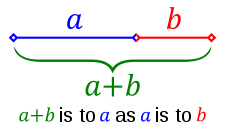
What's the Golden Rule and how does it apply to real life? That's how I started down this road and ended up at the Golden Ratio.
Turns out the Rule is "Do unto others as you would have them do unto you." A classic quote and philosophy found in almost every religion.
The Ratio, described in the picture above, appears geometrically in nature, music, architecture, art, and places you don't expect, like your face. It throws you for a curve just thinking about it, but look at any straight edge in front of you (a coffee table perhaps?) and start breaking it down with your hands the way the picture describes.
The idea has been around for centuries! Fascinating stuff.
November 22, 2010
Why Can't We Walk Straight?
Click on the link for a fun video about why we turn in circles when blindfolded and told to walk straight. We still don't know!
They didn't mention testing blind people though, which is curious. The blind are known to strengthen their other senses, so they'd probably do better.
If we can see, so be it. If we can't, we train our other senses. So it's a conundrum why we'd study this at all. Still, the style of the video is worth watching.
November 16, 2010
What to do when you're feeling stuck
In all this, be kind to yourself and remember that we all get stuck sometimes. Think of it as a part of your process, a necessary step on your journey, rather than as a problem that shouldn’t be happening. This can help to keep your frustration at bay and give you the space you need to take a deep breath and really figure out what’s going on.
November 12, 2010
Flash Mob
Gut-wrenching but too astonishing to tear your eyes away.
I’m constantly amazed at what people enjoy and what they can do when they work together. I’ve been on top and been the base of several two man towers before when doing bhangra. Human instinct kicks in and your legs start shaking, not because of the weight, but because of the fear. It’s exhilarating working with a group of people to do a stunt like that.
What a thrill to see group work at this scale.
Casteller from Mike Randolph on Vimeo.
November 11, 2010
The Bucket List Lie
But, then make a List Of One.
A single, meaningful action you’re going to take before the end of the day to move you one step closer to a single, deeply meaningful quest.
From: http://www.jonathanfields.com/blog/the-bucket-list-lie/?utm_source=feedburner&utm_medium=feed&utm_campaign=Feed%3A+JonathanFields+%28Jonathan+Fields+%7C+Awake+At+The+Wheel%29
The idea of focusing on just one thing is popular for
- Presentations - one word/image/sentence/idea per page (think Steve Jobs, Garr Reynolds)
- Agendas - discuss one topic that everyone can get their head around (think GTD)
- Companies - one consistent theme that every employee echoes (think customer service, bottomline, efficiency, quality, etc.)
In all the above, concentrating on one has been shown to be a measure of progress, of eventual success.
Over the years, my daily to-do list has whittled down from 10 to 5 to 3 to just 1 thing. It’s easy to think of, easy to track, easy to accomplish and functions as a self-fulfilling reward.
Great example: working out. You go in knowing you’re going to do X exercise for a certain amount of time. Once you’ve achieved it, you’re done. It’s incredibly satisfying and motivating. You want to do it again because you know you can.
Jonathan Fields’ idea of a List of One works off the same mechanism. Start with one and take it from there. Great advice.
November 10, 2010
Social Entrepreneurship
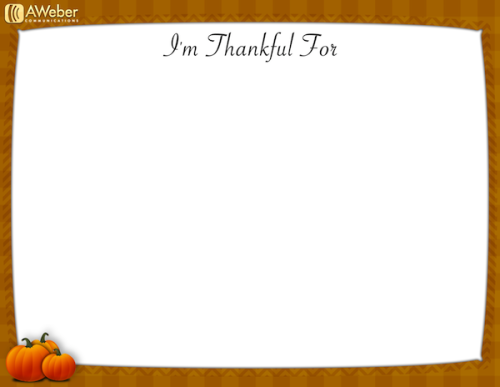
It's great to see companies like AWeber helping to keep the internet community fun and social. I assume companies at their outset are more local and friendly, and simply due to size eventually become unreachable.
Few, like Zappos, Bungie and 37signals though have kept up their customer-centric attitude throughout.
Regardless of marketing strategy, I can't help but like this Thanks-giving attitude. October till New Years is such a beautiful time of the year.
Breathing thought into existence
When we hold a thought in our mind without being distracted, we have achieved pure thought. When we have a positive emotional response to that thought, we enable it to dance and move and breathe itself into existence.
Just because...
A Final Cocoon - Dying at Home - NYTimes.com
“He said: ‘It’s O.K., everybody has to die. I’m here with you, let’s just focus on the now,’ ” she recalled. “He also said one of the things he had to do was finish this house, to put the windows in. We talked about going to Hawaii. He said, ‘Let’s go to Hawaii and be with God.’ In Bernd’s eye, God was beauty, God was nature, God was the flowers, the mountains, the moon and the stars, so he wanted to be outside all the time. He was not one who was going to lie in bed and die, that’s for sure.”
Fascinating and articulate read. We carry a sense of home imprinted since childhood with us from apartment to studio to house, wherever we go.
How we externalize it through design is up to us, our unique touch on an old recipe that will continue to be passed on.
Home doesn't have to be filled with just material reminders. The FEEL of a place, the essence that only we can know, is much more important. Nature, buildings, colors, woodwork, noise levels, the general hum we hear when we close our eyes. These are the elements that matter.
We reproduce in more ways than through the genes perpetuating our lineage. A sense of self carries on simply because of our presence.
